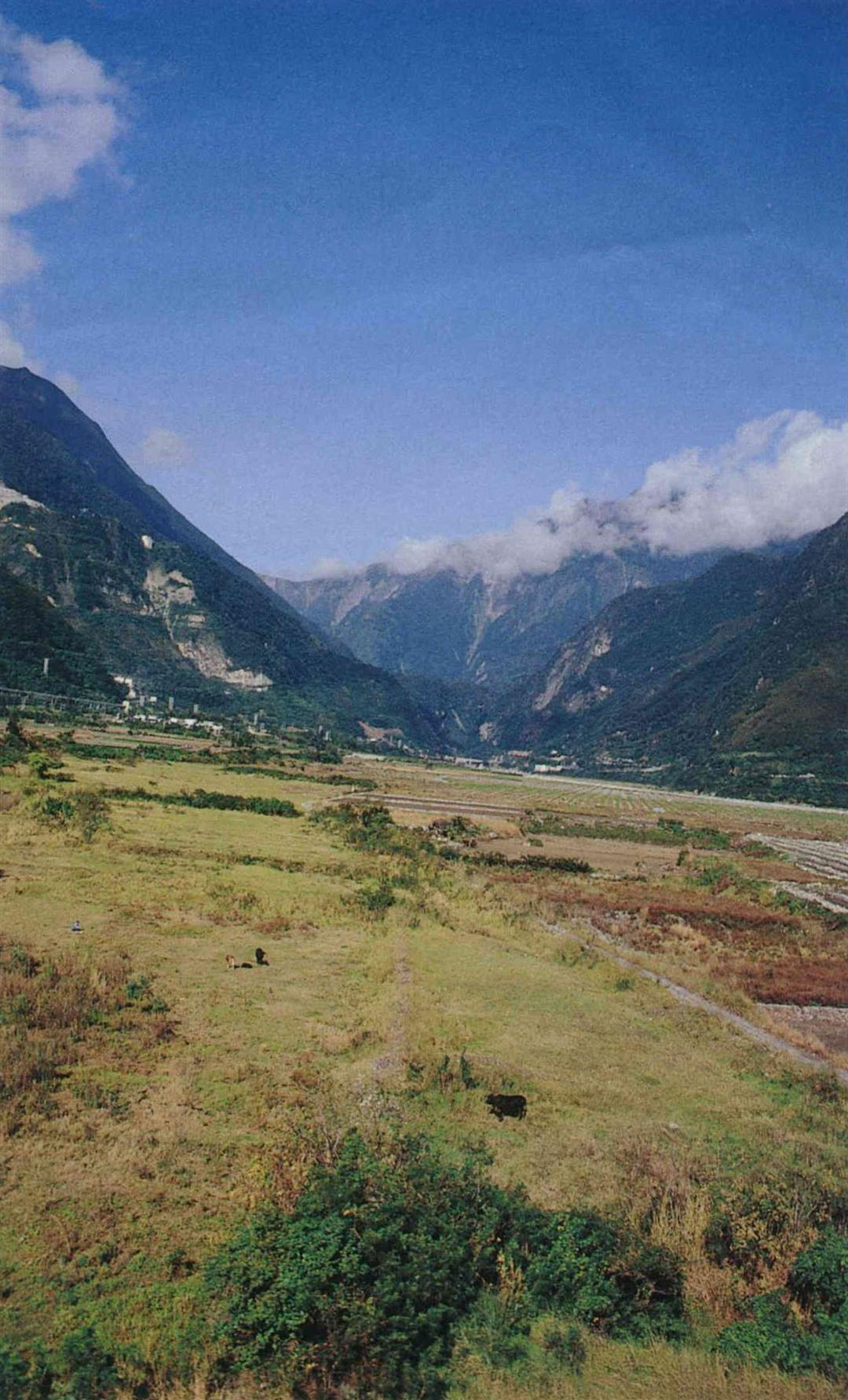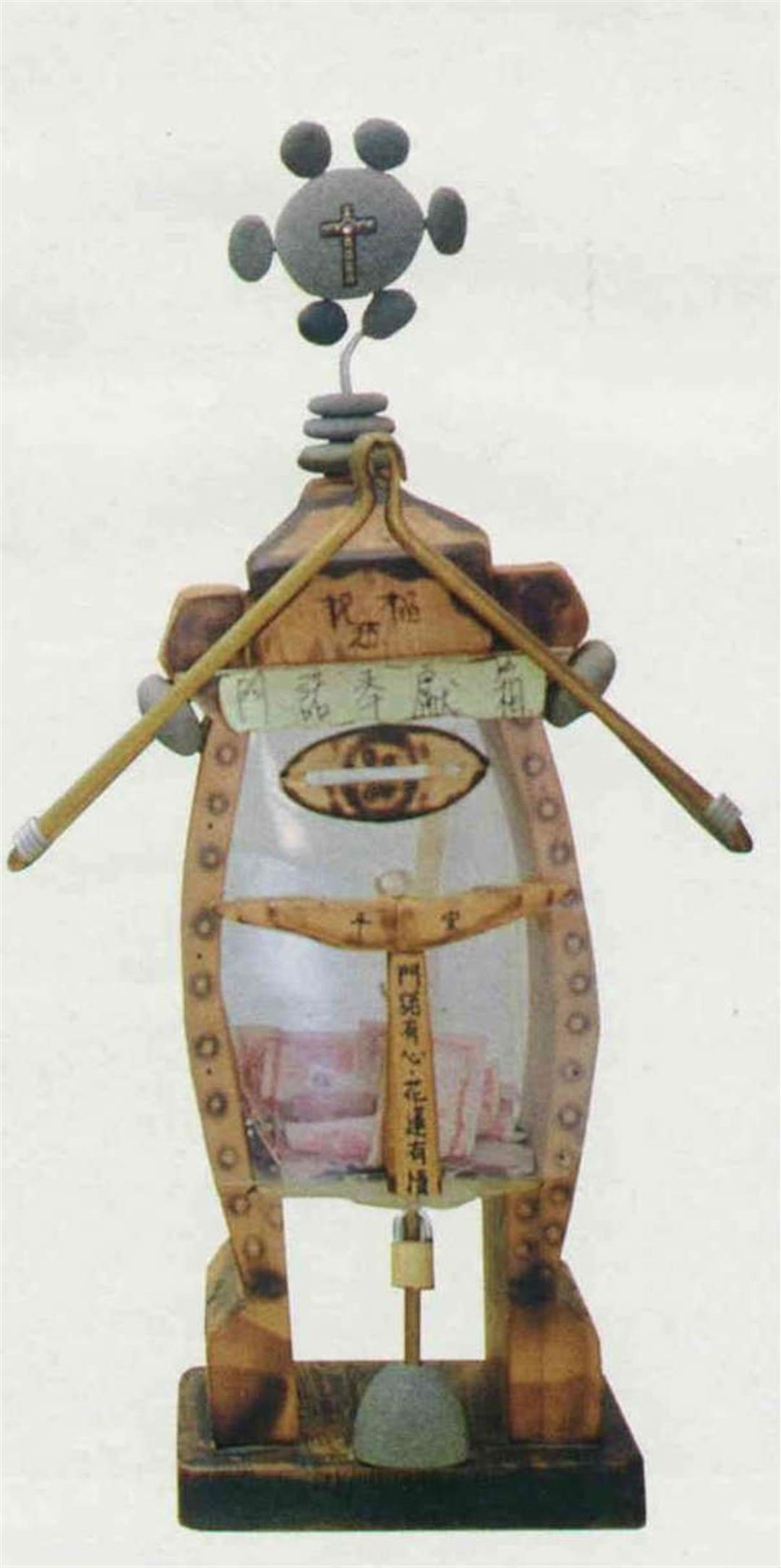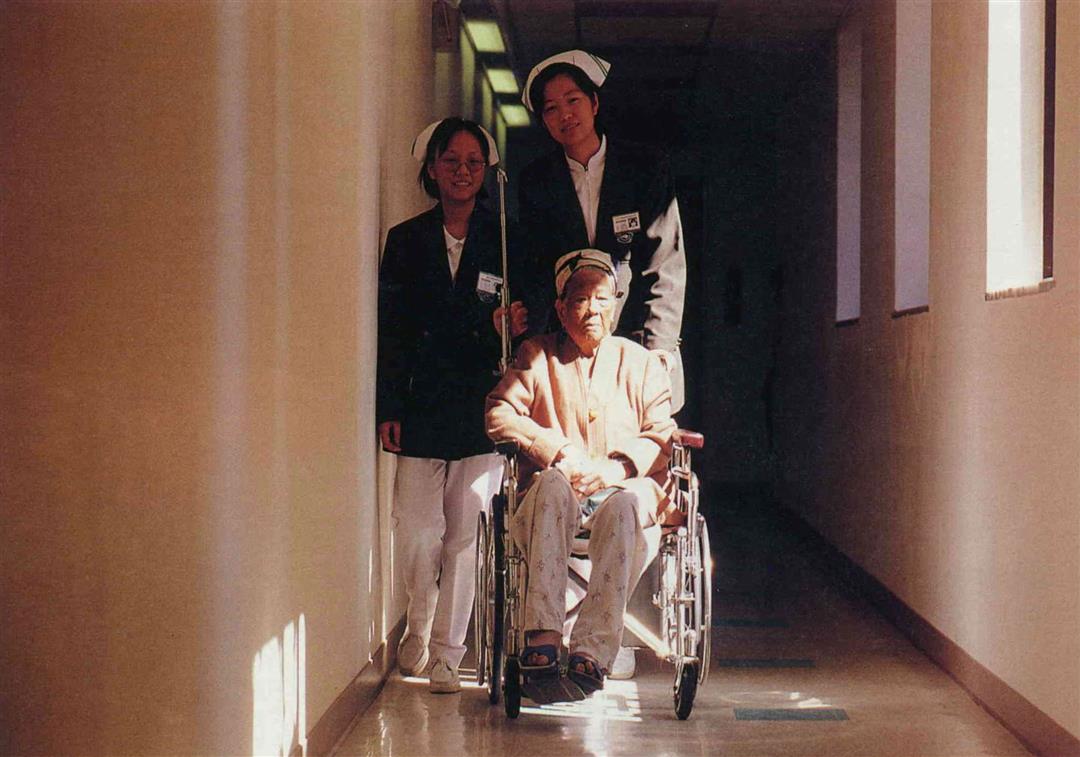At a time when many physicians are emigrating from Taiwan, one group of doctors have come back to work in their native land. Why are they coming back, and why have they chosen the Mennonite Christian Hospital in Hualien?
Pediatric department director Lin Che-hsiung, who lived in the US for almost 30 years, describes his feelings on returning to Taiwan with the same words as the US president's wife on taking her daughter to Stanford University: Full of fear, hope and love.
"Taiwan is a lovely place," says Mennonite Hospital superintendent Huang Sheng-hsiung, who returned to Taiwan four years ago. He feels most deeply that "after looking at the big wide world, I found that the place where you feel the most secure and contented is your own home country."
Over the past few years, bucking the trend of doctors emigrating which has affected other hospitals in Taiwan, the Mennonite Hospital has seen a "reverse brain drain" in physicians. Almost 10, including hospital superintendent Huang Sheng-hsiung, medical vice-superintendent Chang Kuang-hsiung, pediatrics director Lin Che-hsiung, gynecologist and obstetrician Tsai Chang-che, anaesthetist Huang Hsiang-po, vice-superintendent for medical education and technology Yang Chang-shih and cytotechnology director Yang Fang-chih, have all returned from the US to work in Taiwan.
From passing through to returning home
Having left home as youngsters and now returning in their mature years, some of the doctors were filled with trepidation, while others felt a new sense of ease. Just as they all had different feelings about returning to Taiwan, their reasons for coming back were different too. The only thing they had in common was that they had all been warmly invited by Mennonite Hospital superintendent Huang Sheng-hsiung.
While Huang Sheng-hsiung was living in the US he took part in missionary medical teams to other countries. From 1983 onwards, he took a month out every year to go and serve the sick in countries all over the world. Hualien's Mennonite Christian Hospital was one stop on these travels. In 1986 he spent a month there as a volunteer, never imagining that six years later he would be back to take over as its superintendent.
Among the heavy responsibilities weighing on the superintendent's shoulders, besides having to find financial donations, is that of finding people. Recruiting local doctors has proved difficult-several times when the hospital advertised for staff there were very few applicants, and some doctors who did agree to come and work subsequently changed their minds when another opportunity came up. The disappointed Huang Sheng-hsiung saw no choice but to cast his net wider, and try to recruit doctors from America.
The best evidence
"I assure them that these past four years back here in Hualien at the Mennonite Christian Hospital have been the happiest four years of my life," says Huang, adding that his own experience is the best evidence with which to attract doctors back to Taiwan.
He says with deep feeling that in his many years' medical practice in the US, although he gained quite a reputation as a neurosurgeon, in the end it was still just a job. But now that he has the opportunity to give something back to the land where he was born and bred, "my mood is completely different."
What prompted gynecologist Tsai Chang-che to leave behind his children and come alone to Hualien and the Mennonite Hospital was the spiritual inspiration he received from Huang Sheng-hsiung.
Tsai was a very successful doctor in the US, and used to have his own practice in the Los Angeles area. He is not a Christian, but he gives the strongest impression of being one. Tsai was very active both in medical circles and in Chinese associations in the US, but he says that in recent years he had gradually come to realize that fame, fortune and rank are of no value, and that taking part in too many activities actually robs one of the concentration and perseverance to progress in one's specialism. Thus in May or June of 1997, when he was "summoned" by his former Taipei Medical College fellow student, he resolved to resign the position he had recently taken up as director of obstetrics and gynecology at a New York hospital, and report to the Mennonite Hospital for duty.
Apart from such appeals to bonds of friendship, all kinds of other circumstances have combined to bring these doctors back to Taiwan.
Huang Sheng-hsiung notes that all these doctors, who are in their fifties and sixties, already had successful careers, and no financial worries. To come back and work in Taiwan at this time gives them a sense of fulfilment they may have been lacking, so they are very willing to give it a try.
No place like home
Medical vice-superintendent Chang Kuang-hsiung, who was a classmate of Huang's at Taipei Medical College, and the hospital's other vice-superintendent Yang Chang-shih, are two examples of doctors who returned seeking a sense of fulfilment.
"Although I have my sense of ethnic identity, I'm not all that gung-ho about that kind of thing." When asked about his reasons for "returning home in his old age," Chang Kuang-hsiung says with a smile: "After practicing medicine overseas for many years I was getting a bit blas*, and felt I lacked a sense of spiritual fulfilment. I thought that people who speak the same language as me might need me more."
Pathology director Yang Chang-shih, who only started at the Mennonite Hospital in 1997, admits he has a special attachment to his homeland. "In Taiwan I can speak my own language, and my old classmates, friends and relatives are here, whereas in the US I was just there to earn money, so it had less meaning for me," he says. Today, with the Internet and the telephone making communication with friends and family in the US so easy, and with less difference in incomes, many people would like to come back to Taiwan.
Left as a lad, back in old age
Meanwhile for Chen Wen-hsien, who holds a doctorate in clinical chemistry, and his wife Yang Fang-chih, director of the Mennonite Hospital's cytotechnology department, one reason for coming back was because of Chen's aging parents. "My parents are getting old, and they very much wanted us to come back," he says. In 1996 he came back and took up some part-time teaching at Fu Jen Catholic University. But because he couldn't find a suitable full-time job, he "went back discouraged." But in 1997, "thanks to God's mysterious intervention," he found out on the Internet that the Mennonite Hospital was looking for a cytoscopist (cell examination specialist), which just happened to be his wife Yang Fang-chih's specialism.
Pediatrics director Lin Che-hsiung, who has the elegant nickname "the Culture Doctor," is actually more interested in culture than in medical practice. Thirty years ago he set up the New Tide Library publishing house in Taiwan, to specialize in translating and publishing well-known Western works. But today, he has come back for the sake of Taiwanese culture.
"Whatever you do, don't go repeating that stuff about me leaving a high paid job to come back and work here!" says Lin Che-hsiung. That is how several media reports have described him, but this makes him "feel guilty," for "pediatricians are not nearly so well paid in the US as in Taiwan." He says the germ of the idea of coming to Hualien was planted four years ago, when he came here to support a friend in an election campaign. "It was only when I came here for the campaign that I discovered how beautiful Hualien is, but also what a tough life the local aboriginals have. This struck me very deeply, and I hoped I might have the opportunity to do something to help them. . . ." Six months ago Lin Che-hsiung left behind his wife and children in the US and came back to Taiwan to become a real "Taiwan independent" (someone alone in Taiwan while their family is overseas-a pun on "supporter of Taiwan independence").
Taiwan's California
Apart from subjective emotional factors, many factors in the objective world around the doctors have also contributed to this wave of returners.
Yang Chang-shih says that two or three years ago when the US economy was in the doldrums, many students returned to Taiwan on graduating, but the people coming back now are mostly at an age where their children have "flown the nest." "Every time I go to the States, a lot of people want to hear about my 'Taiwan experience,'" says Yang.
Apart from this, Huang Sheng-hsiung notes that in recent years, as the US has introduced "managed health care," profit-oriented insurance companies have had the right to refuse to pay for various tests and treatments, so that physicians have gradually lost their autonomy. Meanwhile, with the advent of National Health Insurance in Taiwan, health care here is becoming better organized. Comparing the two trends, many doctors have decided to take early retirement and come back to work in Taiwan.
Huang Sheng-hsiung, just back from spending Thanksgiving in the US, says excitedly that on this trip he met two surgeons, one living in Oklahoma and the other in Ohio; both were interested in coming back to Taiwan.
However, there's many a slip 'twixt cup and lip. When these doctors return after being out of the country for many years, the first problem they have to face is that of their living environment.
"I'm still adjusting," says medical vice-superintendent Chang Kuang-hsiung, who came back over two years ago. "Litter blowing everywhere and streets full of stray dogs" are things he still has trouble accepting today.
Yang Fang-chih, who has already had two bouts of flu since coming back less than two months ago, admits that although her "heart is in Taiwan," unfortunately her body has become used to the environment in America, and she doesn't aim to spend her old age here.
Fortunately, the Mennonite Hospital is in Hualien, with its mountains, sea coast and pleasant scenery, and not in crowded, bustling Taipei City. This is one aspect which attracts returning doctors to settle here.
Lin Che-hsiung describes Hualien County as "Taiwan's California"-its beautiful scenery, long coastline and earthquakes are all reminiscent of the Golden State. "There is great scope for both medicine and culture in Hualien; Eastern Taiwan is where Taiwan's hope lies," he opines.
A "second spring"
Although most of the doctors who have returned are in their fifties and approaching retiring age, they have not come back with the attitude of people waiting to retire.
Chang Kuang-hsiung observes that although at the Mennonite Hospital they have "less money, more work and are far from our families," the working atmosphere is excellent, and they feel very happy.
"During these few years I hope I can attract a few Taiwanese doctors to Eastern Taiwan," says Huang Sheng-hsiung. He plans to stay at the Mennonite Hospital for 10 years, at the end of which time he will be 65 and ready to retire. He then plans to go back to the US to study in a seminary for a few years, and become a pastor.
"Coming back after 30 years overseas, my biggest reward has been discovering the beauty of Taiwanese culture," says Lin Che-hsiung. He explains with fervor: "From the way I set up the New Tide Library to introduce Western thinking, you can see how typically blind I used to be to Taiwanese culture. All I thought about was world culture and Chinese culture; I knew nothing about Taiwanese culture."
Lin Che-hsiung plans to work at the Mennonite Hospital for five years, and after he retires to dedicate himself to cultural work, in order to create a "second spring" for Taiwanese culture. At present he is just beginning to compile a compendium of Representative Taiwanese of the 21st Century.
Lin is eagerly planning to create a "second spring"; but gynecologist Tsai Chang-che, who returned to Taiwan three months ago, finds himself torn between love for his family and love for his homeland. Both to his three children, who are studying at graduate school and university in the US, and to the Mennonite Hospital, he has "promised a year": after one year he will decide what to do next.
These doctors do not necessarily intend to return permanently to their "roots." They each have their own plans for their retirement and their own path for the future. But come what may, they have all made an indelible contribution to the Mennonite Hospital, to Hualien and to the land of their birth.
p.108
Whether passing through or home to stay, they have chosen to come back to work in their native land before they retire.
p.110
Huang Sheng-hsiung says: "After looking at the big wide world, I found that the place where you feel most secure and contented is your own home country."
p.111
Blue skies, white clouds, green hills and an azure sea-Hualien's beautiful natural environment is one of the reasons why doctors returning from overseas decide to come to the Mennonite Hospital.
p.112
"I've given my whole life to the Chinese-are you willing to give a little money for your own brothers?" This was the appeal the old superintendent, Dr. Roland Brown, made as he said farewell to the hospital.
p.113
Although they earn less, work more and are far from their families, the harmonious working atmosphere at the Mennonite Hospital makes up for everything.

Blue skies, white clouds, green hills and an azure sea--Hualien's beautiful natural environment is one of the reasons why doctors returning from overseas decide to come to the Mennonite Hospital.

"I've given my whole life to the Chinese--are you willing to give a little money for your own brothers?" This was the appeal the old superintendent, Dr. Roland Brown, made as he said farewell to the hospital.

Although they earn less, work more and are far from their families, the harmonious working atmosphere at the Mennonite Hospital makes up for everything.